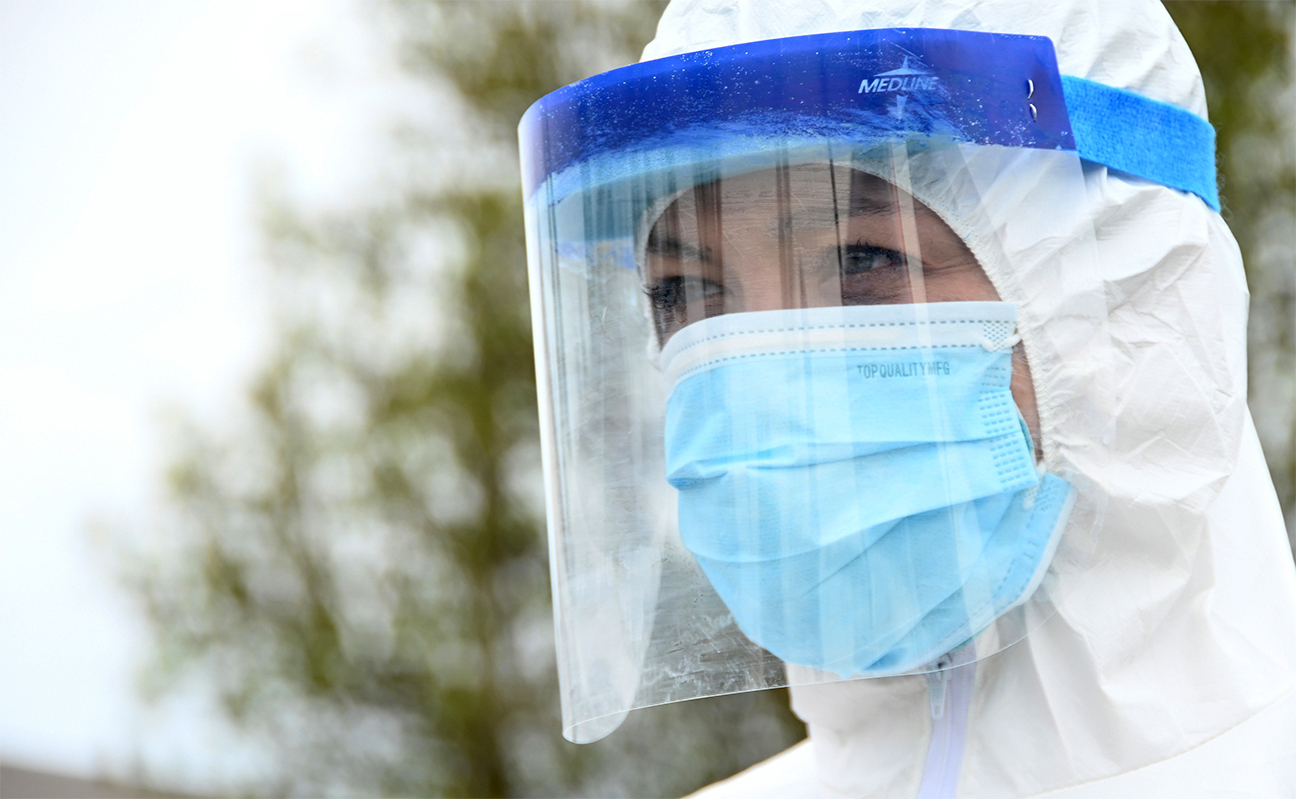WRIGHT-PATTERSON AIR FORCE BASE, Ohio – Col. (Dr.) Michael Xydakis, an ear, nose and throat surgeon in the Air Force Research Laboratory, assembled a multi-national team of nine other medical professionals, who consolidated their front-line observations and recommendations regarding early symptoms of patients infected with COVID-19 in an article that was published online April 15 in The Lancet Infectious Diseases.
Xydakis, who works in AFRL’s 711th Human Performance Wing, and this team state that during this pandemic, the sudden onset of difficulty with smell (anosmia) or taste (dysgeusia), with no other nasal congestion or other symptoms, should cause healthcare providers to exercise increased caution.
“New onset anosmia likely serves as a reliable proxy marker of infection,” explained Xydakis. “Diagnosing asymptomatic or mildly symptomatic carriers early and advising self-quarantine is essential to control the spread of this virus. By diagnosing patients infected by COVID-19 early in their disease process, we are essentially going after the kindling before it becomes a forest fire.”
Aimed at strengthening the COVID-19 diagnostic criteria for healthcare providers, the article offers recommendations to those treating, testing and diagnosing patients presenting with rapid onset difficulty with smell or taste.
“Most concerning,” said Xydakis, “is the recent and compelling evidence that viral shedding and transmission may occur in asymptomatic carriers or mildly symptomatic patients, and the current screening processes for detecting COVID-19 do not include testing taste or smell functions.”
The Lancet Infectious Diseases is recognized as being a global and authoritative forum for infectious diseases research and opinion, explained Xydakis, so we hope this information is rapidly disseminated to other health care providers.
Included in the article are recommendations for healthcare providers with patients who report a sudden loss of smell or taste, but do not have nasal congestion or other symptoms that accompany allergies or the common cold.
Healthcare providers should have a high index of suspicion for COVID-19 in patients who present with new onset anosmia as the only symptom, Xydakis said.
“The clinical research that we are conducting in AFRL is intrinsically translational and, in a time of crisis, offers the shortest path for providing senior leadership with actionable, decision-quality, operational information” said Xydakis. “The same holds true for the national and international partnerships we build along the way.”
Click here for more COVID-19 information.

U.S. Air Force Tech. Sgt. Leigh Crane, an aerospace medical technician with the 118th Medical Group, Tennessee Air National Guard, waits for a patient to arrive at a drive-up COVID-19 testing site March 30, 2020 in Livingston, Tennessee. (U.S. Air National Guard photo by Master Sgt. Jeremy Cornelius).

